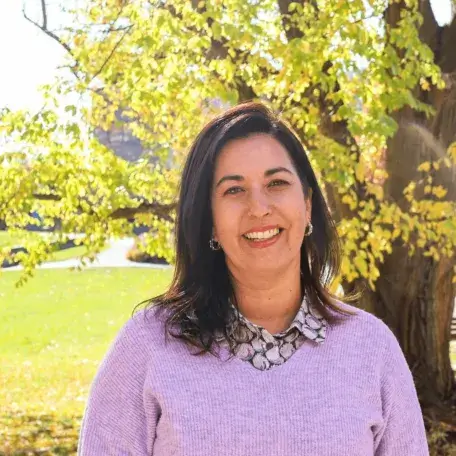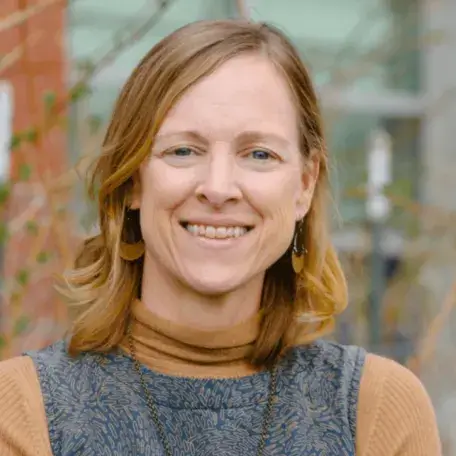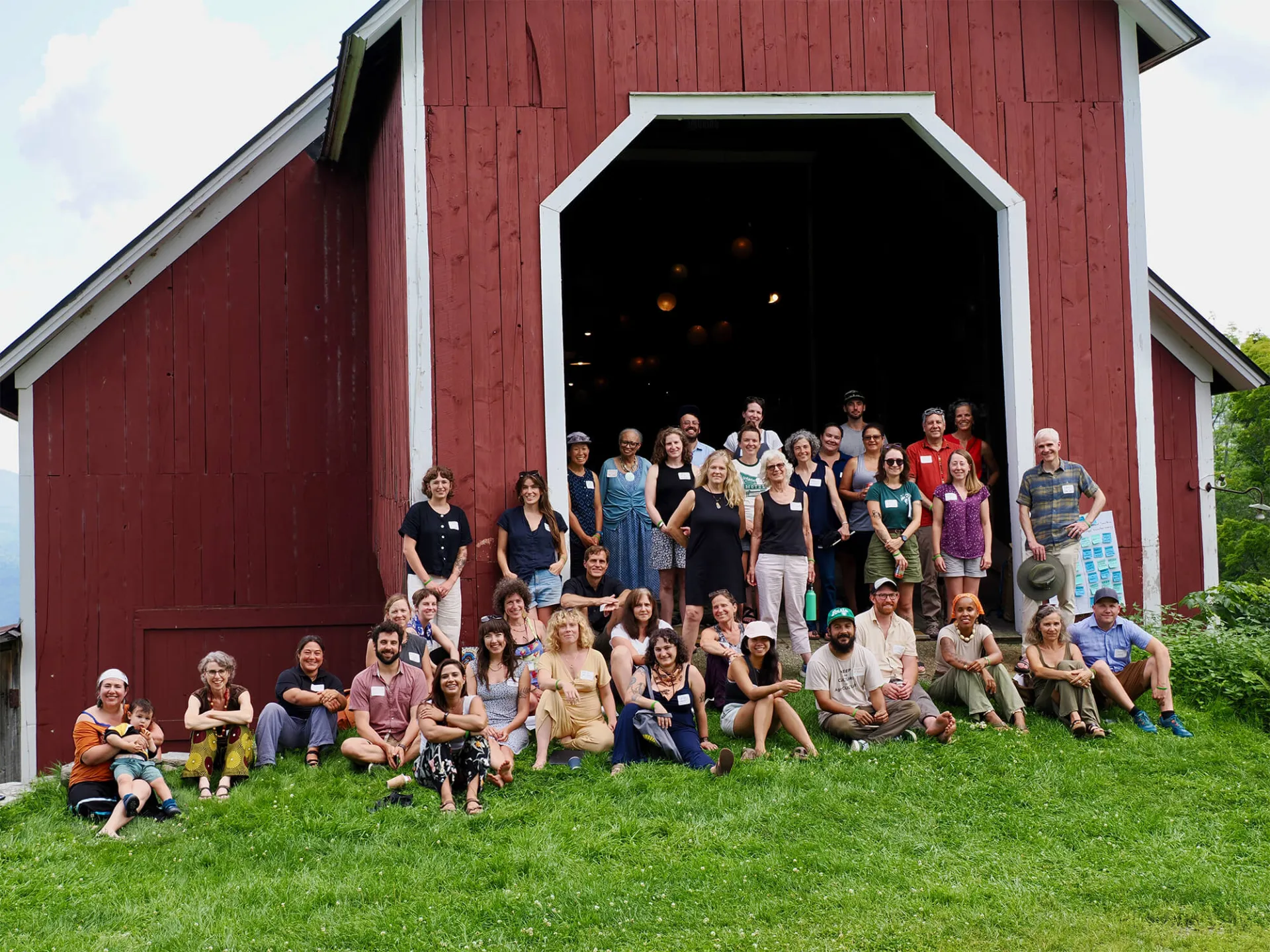
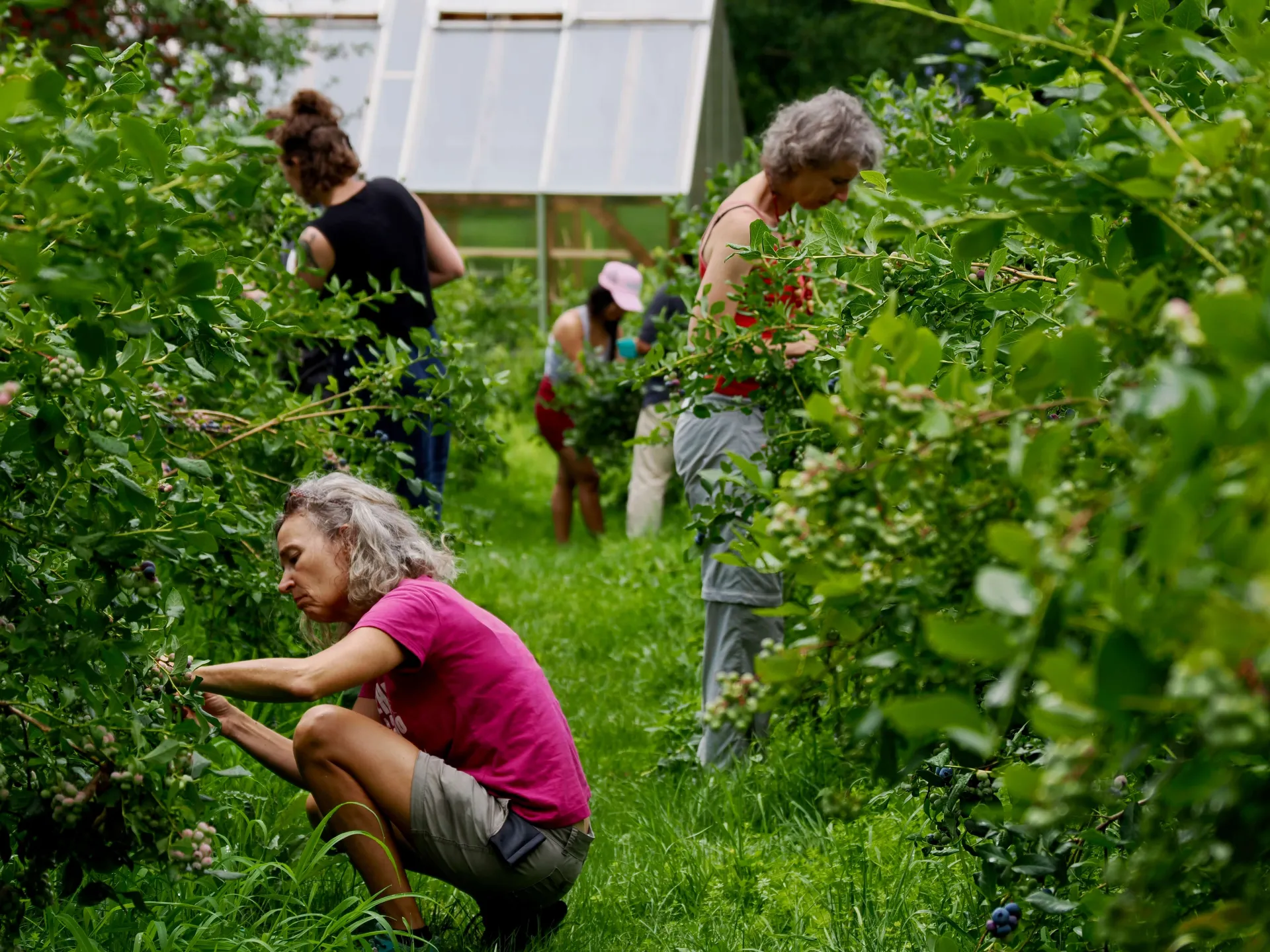
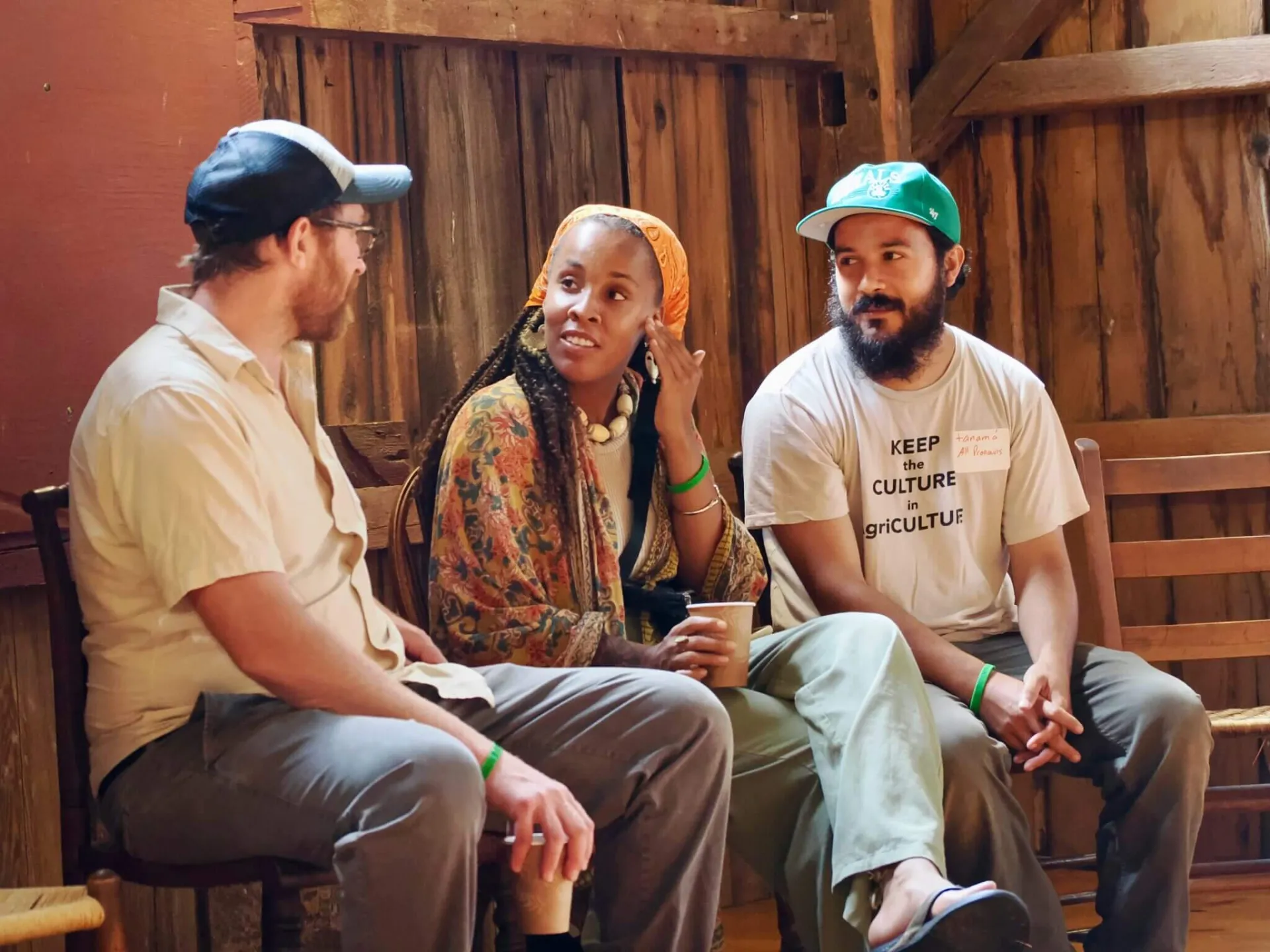
Participatory Action Research Project
This participatory action research project investigates how collective efforts to build more equitable, ecological and just food systems in the Northeastern US can benefit from thinking and acting regionally.
How might thinking and acting regionally support efforts to build more ecological, equitable and just food systems? How might we build collective power to democratize food governance while challenging unbalanced power structures in our food system?
This project examines how regional governance approaches can transform food systems in New England to be more ecological, equitable, and just. Through community-engaged research with frontline communities, food providers, and grassroots organizations, we're investigating how multi-actor coordination on regional food systems can create new institutional arrangements, policies, and markets while strengthening democracy and civil society in our food systems.
Research demonstrates that regional food and agriculture governance involves multi-actor and cross-sector coordination that can lead to new institutional arrangements, visions, policy change, and markets while fostering democracy, innovation, and strengthening civil society (Ruhf and Clancy 2022; Reeve 2022; Wezel et al. 2015).
New England has a robust history of food systems organizing at a regional scale. In this project we aim to learn from this rich legacy of work in the region and think about how those lessons can support future collective efforts. We will also analyze current dynamics in the region and explore innovative and exciting examples of governance on key issues relevant to food sovereignty such as land tenure, data governance and the right to food.
Building on historical regional organizing efforts, this project:
Assesses the impacts of prior regional food systems initiatives and processes, such as the work of FSNE and regional partners to develop the 2014 New England Food Vision through a series of convenings across the region.
Outlines key issues, trends and trajectories in current regional food systems organizing, particularly in the context of changes to the federal governance landscape and impacts on food providers, workers, and communities.
Identifies priorities for food governance transformations that center the expertise, needs, challenges, opportunities and aspirations of food providers and workers in the region who provide food for their communities.
Our starting point is that food systems transformation requires governance transformations. Our research approach mobilizes participatory action research methods that center relationships of equity and reflexivity with community partners, while working to shift unbalanced power relationships within and between food systems actors. By assessing the process and impacts of regional organizing work done to date, the aim is to facilitate collective reflection about what has been or is being done well, and where more attention is needed to strengthen current and future collective efforts for transformative change.
Activities
Research Focus Areas
Research Focus Areas
Governing Land
Investigating Indigenous Land Back movements, land trusts, and other non-commodified forms of land stewardship. We're exploring initiatives that center Indigenous Peoples' needs for land rematriation and political sovereignty, while examining other equitable land distribution efforts across the region.
Governing Evidence
What kinds of evidence are used to inform the governance of food systems in New England? Whose knowledge and data count and how can we ensure that unjustly marginalized knowledge, wisdom and voices are given prominence in governance processes. We're identifying the key types of data used in existing regional food visions and state food security plans, while investigating community-centered approaches to data collection that prioritize food as more than a commodity.
Governing Participation
Assessing how participatory processes are organised in regional food systems initiatives. Our team is evaluating consultative processes in state food security plans and visions, examining who is included or excluded, and documenting experiences of Indigenous nations and marginalized communities in these participatory processes.
Key Terms
Transformation
By 'transformation' we refer to "the process through which ways of thinking, feeling and doing food governance might be made more democratic and responsive to public concerns for equity, ecological stability, and justice." (Madden, 2024)
Region
In this project, "region" encompasses multiple interconnected scales of organization, from local food systems and city-regions to multi-state initiatives. New England represents a distinct multi-state region with shared history, ecosystems, and governance networks that transcend state boundaries while enabling coordination between local, state and regional initiatives. We also recognise the contested and multiple meanings of the idea of a “region”, and are looking at Indigenous territorial approaches, bioregioning and territorial governance of agroecology transformations as different ways of thinking about and enacting regional governance.
Food Governance
Food governance includes formal governmental structures and processes (such as laws and polices) as well as broader processes of decision and norm-making about how food systems are governed. Governance is not synonymous with government, but it is rather about who makes decisions, where, through what processes and ultimately about how power is exercised, with important implications for “who benefits and who does not from the process of change” It involves the coordination of public, private, and civic actors that influence how food systems operate at multiple scales.
Agroecology
Agroecology is a way of understanding and transforming food systems using social, ecological, and political principles to build food sovereignty, regenerate nature and create a more just society. It is rooted in indigenous practices and ancestral knowledge, which are combined with scientific knowledge to address the current food crisis. Agroecology is not only about changing farming techniques, but is also about transforming policy, science, cultures, and economies to bring about more just food systems.
Food Sovereignty
Put simply, food sovereignty asserts that people have the right to determine their own food and agriculture systems, including their production models, environments, markets and cultures. The concept of food sovereignty emerged through a collective, grassroots process over decades, and continues to evolve. But the common definition used today is the one developed by members of social movements, NGOs, and others at the Nyéléni International Movement for Food Sovereignty gathering in Mali, in 2007. An excerpt from the Nyéléni 2007 declaration reads as follows:
Food sovereignty is the right of peoples to healthy and culturally appropriate food produced through ecologically sound and sustainable methods, and their right to define their own food and agriculture systems. It puts the aspirations and needs of those who produce, distribute and consume food at the heart of food systems and policies rather than the demands of markets and corporations. It defends the interests and inclusion of the next generation. It offers a strategy to resist and dismantle the current corporate trade and food regime, and directions for food, farming, pastoral and fisheries systems determined by local producers. Food sovereignty prioritises local and national economies and markets and empowers peasant and family farmer-driven agriculture, artisanal -fishing, pastoralist-led grazing, and food production, distribution and consumption based on environmental, social and economic sustainability. Food sovereignty promotes transparent trade that guarantees just income to all peoples and the rights of consumers to control their food and nutrition. It ensures that the rights to use and manage our lands, territories, waters, seeds, livestock and biodiversity are in the hands of those of us who produce food. Food sovereignty implies new social relations free of oppression and inequality between men and women, peoples, racial groups, social classes and generations (2007: n.p.).
Right to Food
A human rights-based approach that utilises legal systems to hold governments accountable to protect, defend and uphold the rights of all people to be free from hunger, food insecurity, and malnutrition. This framework centers equity and human dignity in food system governance.
Key Partners
The UVM Institute for Agroecology
The Institute for Agroecology at UVM is working to seed more equitable and sustainable food systems through a systems approach that addresses the root causes of problems in the food system. We challenge the status quo by centering equity, participation and social transformation in our work. Through research, learning, action, and connecting across geographies, the IFA mobilizes knowledge to support agroecology research, practice and movements.
Research Team
Research Associate Professor, Agriculture, Landscape, and Environment • Co-Director, Institute for Agroecology • Affiliate, Gund Institute for Environment
Colin.Anderson@uvm.eduGund Affiliate • William R. Kenan Jr. Professor of Food Studies, Middlebury College
Ph.D. Student, Agriculture, Landscape and Environment • Gund Graduate Fellow
julie.davenson@uvm.edu